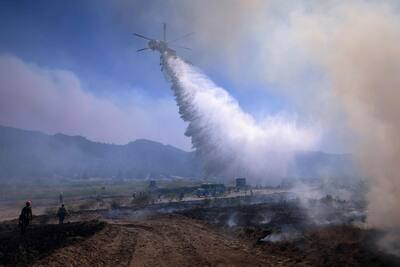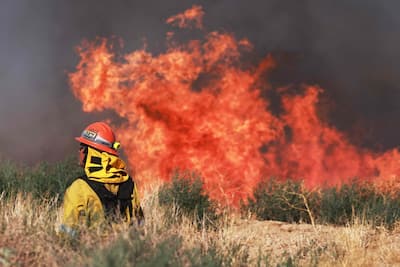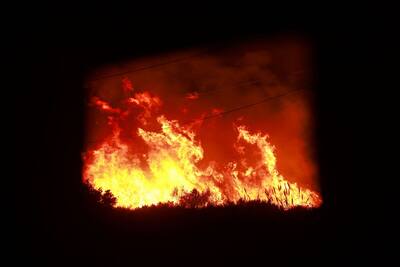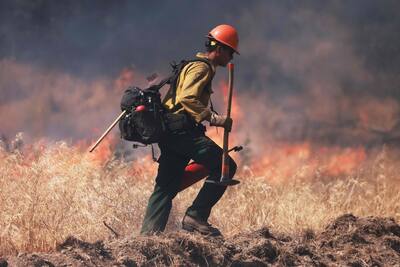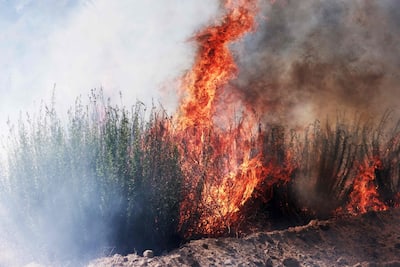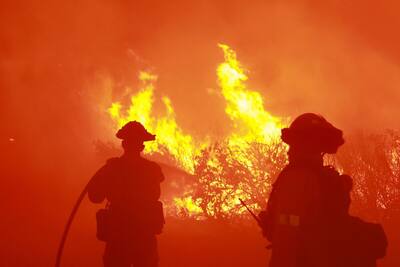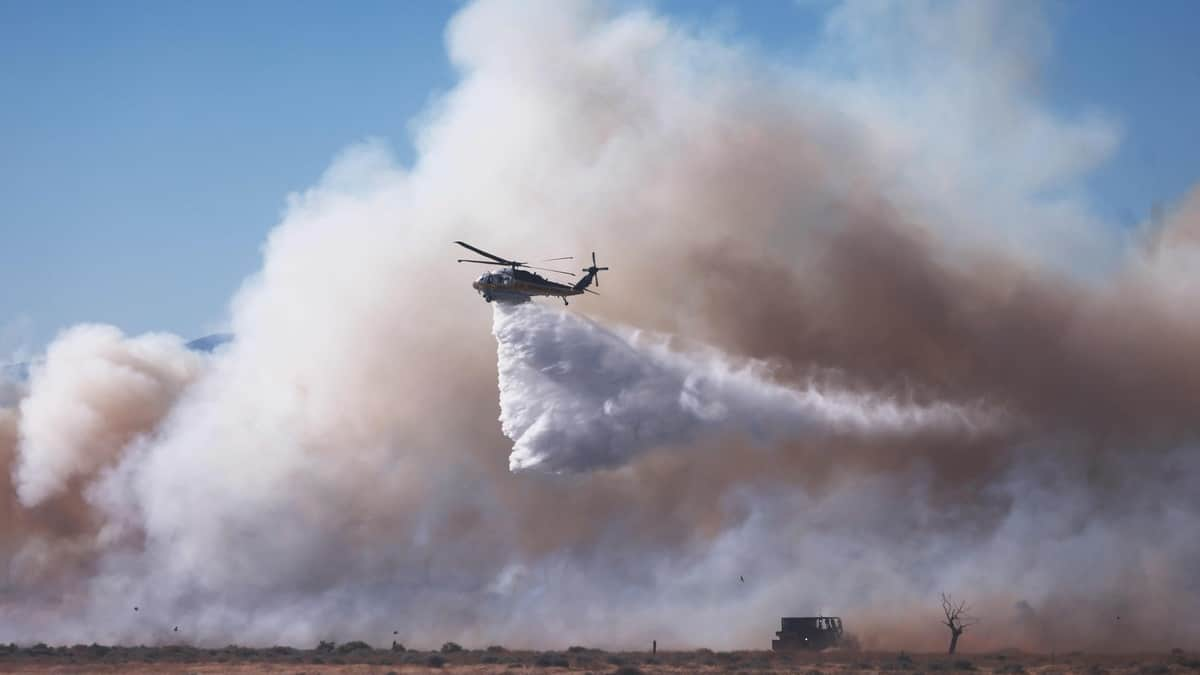
California has been hit by its biggest fire of the year since Saturday, raising fears of a dangerous summer, after two very wet years led to an increase in vegetation that is more likely to be used for fuel, according to specialists.
The “afterfire” broke out in rural Gorman, a little more than an hour's drive northwest of Los Angeles. It burned more than 5,900 hectares in two days and led to the evacuation of 1,200 people, according to authorities.
On Monday morning, only 8% of the fire had been contained, despite the efforts of 1,150 firefighters, according to the latest bulletin from the authorities.
The fire, which spread very quickly due to strong winds, destroyed large areas of trees and pastures in this mountainous region. Homes have generally been saved so far.
This massive fire that broke out in mid-June may be a harbinger of an intense fire season in California. Especially since about fifteen small fires broke out across the state over the weekend.
“By July, we will likely see a very active fire season, especially at lower elevations,” climate scientist Daniel Swain of the University of California, Los Angeles, warned on Monday.
He said the state had experienced “two successive wet winters,” which encouraged the “growth” of particularly dense vegetation. By drying out as summer approaches, this “provides more biomass that can be burned in potential fires.”
Cumulatively, the past two years have been the wettest on record in Los Angeles, according to the U.S. Weather Service.
Early heatwaves this season in the American West are raising concerns about rapid drying of vegetation.
At the beginning of June, record seasonal temperatures were recorded in this part of the country. The mercury notably reached 44 degrees Celsius in Las Vegas (Nevada) and 50 degrees Celsius in Death Valley (California), unprecedented levels at the end of spring.
The rest of the United States is also seeing troubling signs: The center and east of the country are preparing to face a stifling heatwave this week, with temperatures abnormally high for June.
According to scientists, these recurring heat waves are an unmistakable sign of global warming and are expected to multiply, last longer and intensify.
Specialists also believe that abnormally high temperatures in the pre-summer period could be a harbinger of a stifling summer.

